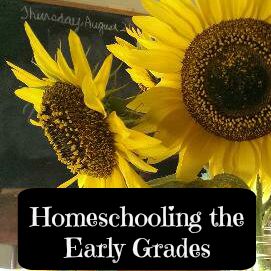“Just as eating contrary to the inclination is injurious to the health, so study without desire spoils the memory, and it retains nothing that it takes in.” – Leonardo da Vinci
In the first two posts in this series we looked at taking a relaxed approach to homeschooling in the early grades and examined the role of our relationships with our children in the learning process. In this third installation of Rethinking the Three R’s, we’ll look at your child’s relationship to the material he is learning.
Passion and Desire
One of the most wonderful things about homeschooling is the ability to tailor an education to the desires and passions of your children. If your 6-year-old is enthralled by the inner workings of the human body, he doesn’t have to wait for high school to plunge deeply into anatomy. If your 4-year-old is crazy about Ancient Egypt, she doesn’t have to wait until the school’s curriculum says it’s time to study it.
True, parents whose kids attend school can, and often do, supplement their children’s learning at home in order to help them pursue their special interests. But when your kids are home with you full time, you have the luxury to go deep into an area of study without having to also follow someone else’s agenda.
We all know instinctively that when we are interested in something, we retain that information so much better than when we are being forced to learn something simply because someone else thinks we should. We also know that not everyone is equally gifted in all areas.
One of our most important roles as parents is to help our children discover their God given gifts and talents and to help them develop these in order to live the life God created them to live.
When you are planning your learning time with your early grades children, don’t worry about “what your 1st grader should know.” Think about what he does know and what else he wants to know. Is he interested in music? Search for low cost concerts (hint: check your city orchestra’s web site for field trip opportunities), check out books and CDs about the lives of composers, let him mess around with musical instruments, listen to as many different styles of music as you possibly can.
Maybe learning about animals lights her fire. Take her to the zoo, or even just to the back yard to watch the critters. Check out books on animals from the library – and don’t limit yourself to the books written at her level. There are amazing children’s TV shows that are filled with wonderful information on animals. No curriculum required.
In addition to deeply exploring the unique interests of your children, expose them to a broad array of new and interesting experiences so that they can discover interests they never knew they had. A good place to start is to expose them to your own interests. One of the best things about having kids is that I have an excuse to pursue my interest in dinosaurs!
Getting off the “conveyor belt”
The conveyor belt curriculum of most schools by necessity asks every child to be equally mediocre in every subject.
“The aim of public education is not to spread enlightenment at all; it is simply to reduce as many individuals as possible to the same safe level, to breed a standard citizenry, to put down dissent and originality.” ~ H. L. Mencken
The aim of homeschoolers is different. We want our fish to be the best little swimmers they can be. But we’re not going to trouble ourselves if they can’t climb a tree.
There is an infinite amount of knowledge to obtained in this life. Are you worried about gaps in your child’s education? Don’t be. There will be gaps. Aren’t there gaps in your education? There are in mine. What’s important is that I know how to fill the gaps when I need to. I was a woefully inadequate cook when I got married. One of my best meals was Kraft macaroni and cheese with frozen peas stirred in. It was fine because my husband did most of the cooking before we had kids. But when I started staying home, it made more sense for me to prepare the food. So I learned to cook. And now I’m a pretty darn good cook, if I do say so myself.
My husband struggled with math throughout high school and college. When he got to a place in his work where he need to do higher level math, he went to Khan Academy and taught himself what he needed to know. It finally stuck because it was relevant and meaningful, and he was able to learn it on his own terms.
Many of the things we want our children to learn will be organically in pursuit of their other interests. A child who wants to cook by himself will be more motivated to learn to read and understand fractions so that he can follow a recipe. A reluctant reader may be inspired to learn to spell so that he can search youtube for videos about his favorite video games.
Since a person cannot possibly know everything there is to know in this world, when deciding what to teach our children it makes sense to start with what lights them up. When their passions and interests are aroused, they will learn and retain so much more than they will following someone else’s agenda.
Next time we’ll examine the third R: learning based on real experiences.
To read the other posts in this series click below:



